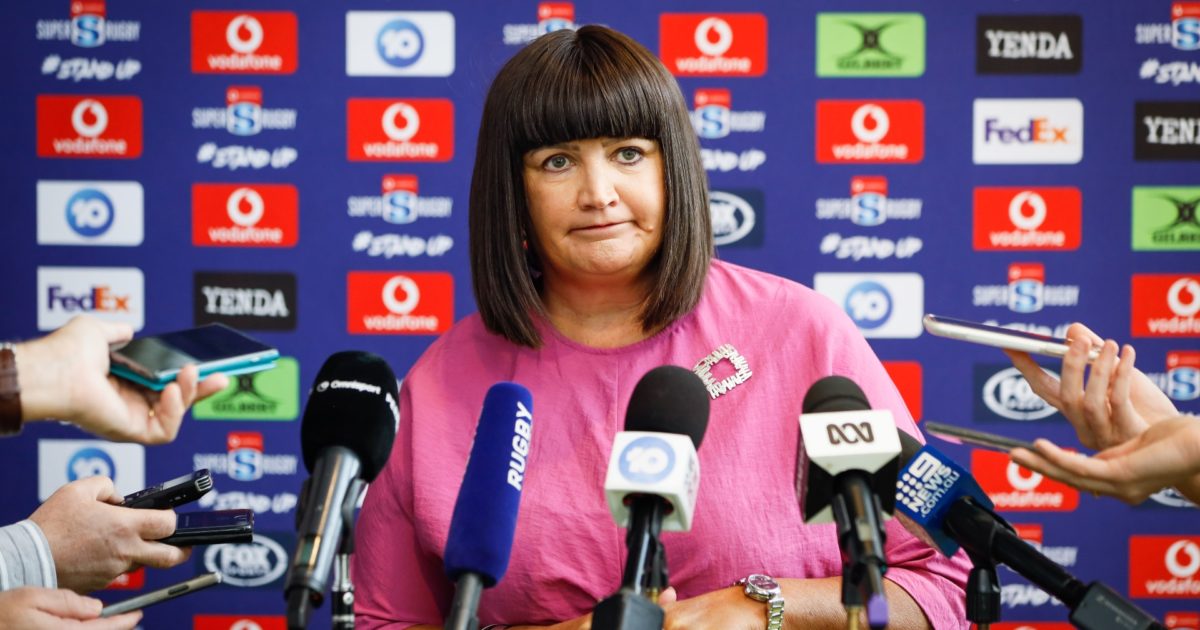New Rugby Australia boss opens up on the 'war zone' that followed Raelene Castle's departure

The new chairman of Rugby Australia says the organisation was left looking like a “war zone” in the wake of the departure of Raelene Castle as CEO earlier this year.
Castle, a former CEO of Netball New Zealand and the Canterbury Bulldogs NRL side, resigned from her role with Rugby Australia (RA) after claiming she was constantly on the receiving end of abhorrent bullying from “faceless people” during her tenure.
Castle was criticised mainly for her handling of the Israel Folau saga and her initial rejection of a broadcast deal with Fox Sports.
The coronavirus pandemic placed added pressure on Castle, putting significantly more financial pressure on the sport.
Hamish McLennan, appointed to the role of Chairman in June, has now described the state of the organisation when he took over during a revealing interview with The Daily Telegraph.
“The whole organisation was a war zone.
“I was deeply concerned about the long-term viability of the game because everyone was fighting and there was no focus on the right outcomes and how we were going to win.”
McLennan was joined at the top of RA’s management structure by new CEO Rob Clarke and and says they have done all they can to conserve and protect the game in Australia during what has been a year of crisis.
“Rob and I weren’t quite sure where the hits were coming from but we made the best decisions based on where we were at any given point in time,” McLennan said.
“I think people are realistic that when you’re in a time of crisis, they appreciate tough calls being made because that sends a message around the direction you want to go.
“We had to protect the game and there’s absolutely no doubt that RA was overstaffed and needed a complete change in direction, and what we’re finding now is that with the bureaucracy gone, there’s great energy there.”
This is real pity ?https://t.co/ZfIfWC0SsI
— RugbyPass (@RugbyPass) October 30, 2020
McLennan singled out New Zealand Rugby’s decision to go solo with Super Rugby Aotearoa as a galvanising moment for the sport and say they have since gained major wins as a result, including the hosting for this year’s Rugby Championship.
“At the time, I thought it was diabolical, but in hindsight they actually did us a huge favour because we became very focused, even maniacal about protecting the players, grassroots and Australian rugby,” McLennan said.
“It created a Fortress Australia mentality because we had no one to rely on but ourselves and the whole organisation dug in behind keeping the game alive. We’ve come out of it stronger. We weren’t going to be pushed around.
“There were times when I was really concerned that the whole thing was going to topple over but I think we’ve stabilised the game and we’re not even at the midway point which is actually really exciting.
“There’s a ton of upside with the Lions tour in 2025 and hopefully the Rugby World Cup in 2027, and if our performance on the field continues to improve, anything can happen with this game.”










































































